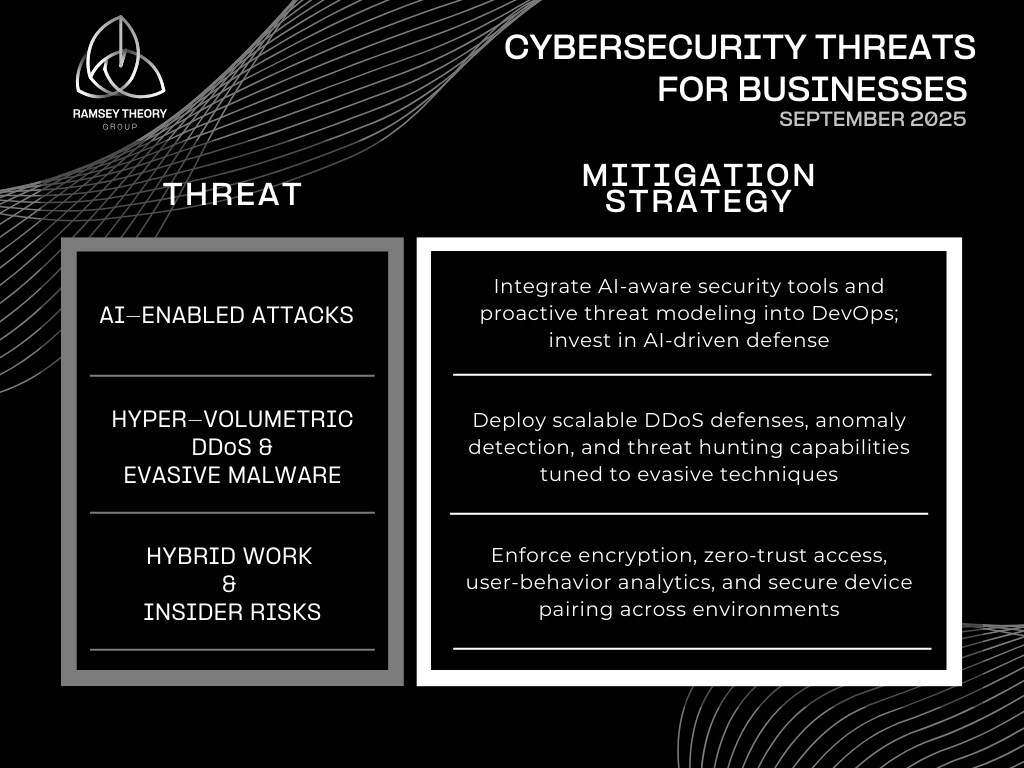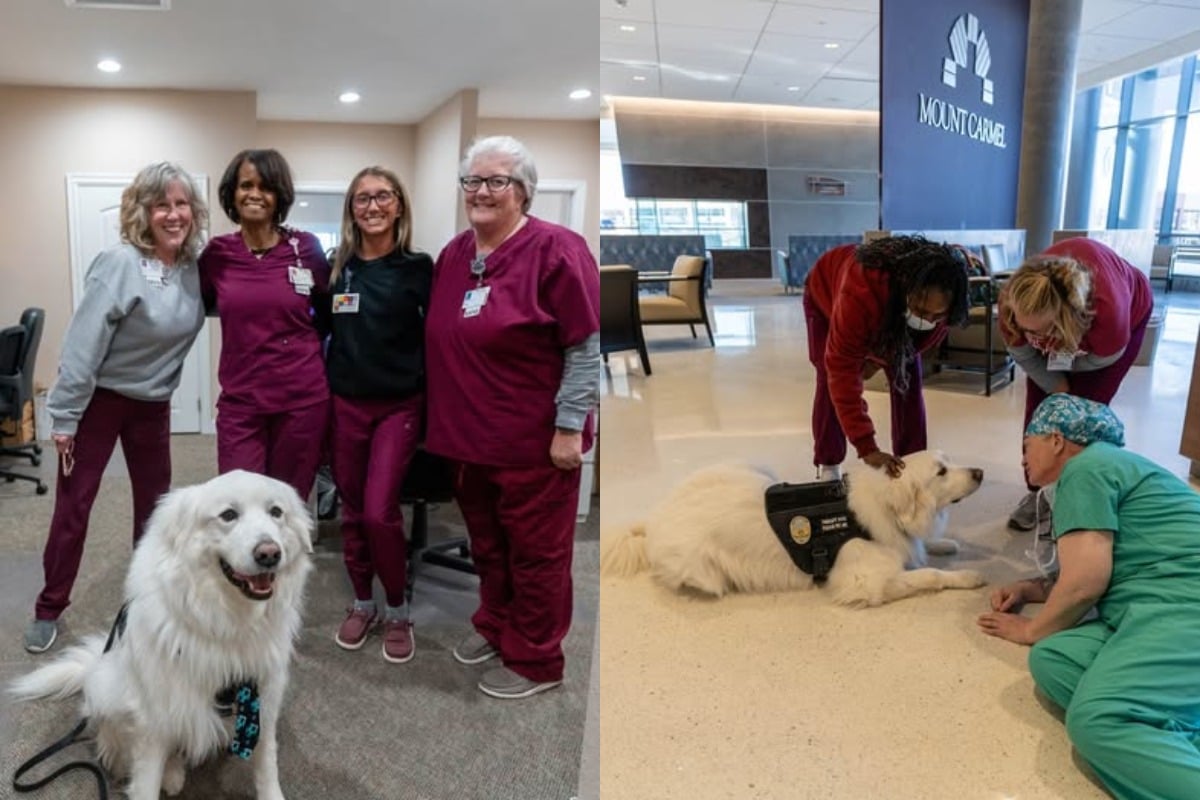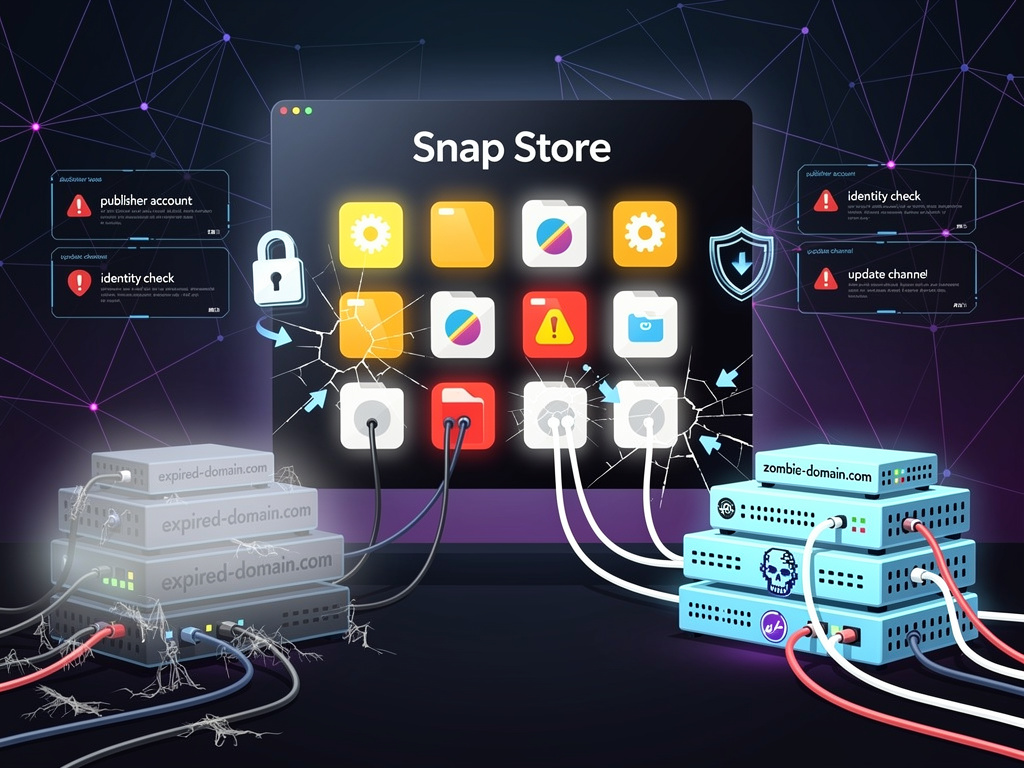
Ramsey Theory Group CEO Dan Herbatschek Outlines the Three Top Cybersecurity Threats for Businesses in September 2025
As businesses navigate the evolving landscape of cybersecurity, Dan Herbatschek, CEO of Ramsey Theory Group, has identified the top three threats organizations must confront this September 2025. In a recent analysis, the firm emphasizes that challenges are not only increasing in number but also in sophistication, driven by technological advancements and changing work environments.
The three major threats highlighted are AI-enabled cyberattacks, hyper-volumetric DDoS campaigns, and hybrid-work vulnerabilities. Each poses significant risks that require immediate attention from business leaders and cybersecurity teams.
AI-Enabled Cyberattacks on the Rise
The integration of artificial intelligence into business practices has brought about remarkable efficiencies. However, it has also opened the door to enhanced cyber threats. Generative AI is now being exploited to create convincing phishing messages, tailored ransomware, and complex malware, often by individuals with minimal technical expertise.
A concerning example is reported by Anthropic, which confirmed that its Claude model has been weaponized by cybercriminals to automate ransomware creation and facilitate extortion campaigns. This development underscores a critical shift in the threat landscape.
To combat these challenges, businesses are urged to strengthen their defenses against AI-driven attacks, incorporate security measures into their development processes, and remain vigilant against evolving adversarial tactics.
Hyper-Volumetric DDoS and Evasive Malware Threats
The cybersecurity landscape is also witnessing an alarming rise in the scale and stealth of Distributed Denial of Service (DDoS) attacks. Recently, Cloudflare mitigated a record-breaking DDoS attack that exceeded 11.5 Tbps in just 35 seconds, illustrating how attackers can deploy massive automated assaults capable of overwhelming infrastructure.
In conjunction with these volumetric threats, a new variant originating from the Mirai botnet has begun infecting devices worldwide, including routers and XMRig miners. This strain employs advanced evasion techniques, such as auto-renaming and hibernation, complicating detection and mitigation efforts.
Organizations are advised to prepare for these unprecedented challenges by adopting advanced security protocols and updating their defenses to counter both volumetric attacks and sophisticated malware.
Addressing Hybrid-Work Vulnerabilities
The shift towards hybrid and remote work environments has transformed the cybersecurity landscape, presenting new vulnerabilities. Cyber threats targeting audio and video communications, such as unsecured video calls and compromised devices, have become increasingly prevalent.
Statistics reveal that human error plays a significant role in cybersecurity breaches, with approximately 95% of incidents attributed to lapses by individuals. Additionally, internal threats, whether from negligent insiders or compromised Internet of Things (IoT) devices, remain high-risk vectors, particularly when access controls are lacking.
To mitigate these risks, organizations should implement robust encryption, adopt zero-trust security models, and enhance behavioral analytics. As the line between corporate and personal devices blurs, these strategies are essential for safeguarding sensitive information.
Ramsey Theory Group encourages business leaders, Chief Information Security Officers (CISOs), and IT teams to assess their cybersecurity posture in light of these emerging threats. For further information about Ramsey Theory Group’s services and to schedule a consultation, visit their website at https://www.ramseytheory.com/.
Founded by Dan Herbatschek, Ramsey Theory Group combines expertise in various fields, including software development, quantitative analysis, and cybersecurity, to help organizations optimize their operations and address technological challenges. Based in New York, the firm specializes in a range of services, from data-intensive application design to blockchain consultancy, ensuring that businesses can navigate the complexities of modern technology with confidence.







